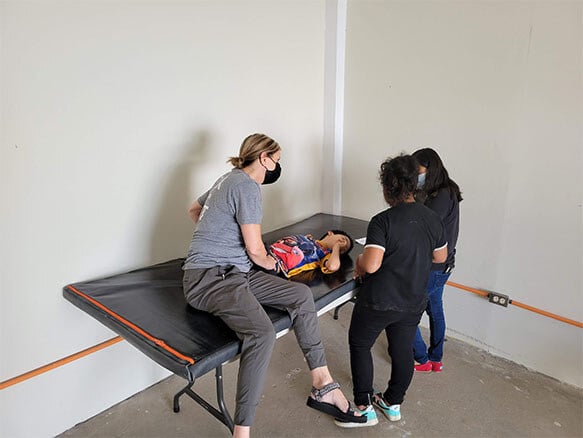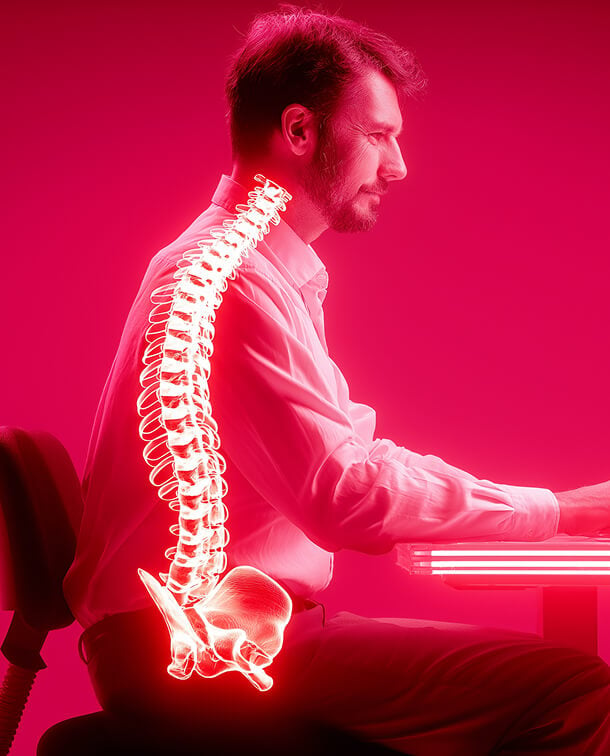As we go through our daily routines, it can be easy to take for granted the amount of time we spend sleeping and sitting. However, recent studies have shown that the average person will spend up to 83% of their life either sleeping or sitting1. This is a staggering amount of time, and it highlights the importance of investing in the proper tools to ensure that these hours are spent in comfort and with proper support for our bodies.
One of the most important investments that we can make is in a high-quality mattress. A good mattress should provide the right amount of support and comfort to help you get a good night's sleep. This is crucial, as poor sleep quality has been linked to a variety of health issues, including obesity, diabetes, and heart disease2. Investing in a high-quality mattress can have a profound impact on your overall health and well-being.

Another important investment to consider is a good office chair.
The average person spends a significant portion of their day sitting, whether it's working at a desk, watching TV, or even driving. Sitting for long periods can put a lot of strain on your back and neck, which can lead to chronic pain and discomfort.
As a result, a well-fitted office chair is key. A good office chair should provide proper support and be adjustable to fit your body. This can help to reduce the risk of pain and injury and can improve your overall comfort and productivity3. Here's what to look for:
Low Back Pelvis Support- The key to good posture is the angle of the pelvis. So, the support should fall lower than the lumbar area to support the pelvis in neutral, inducing an upright posture.Adjustable Upper Back Support- If you sit upright in a standard office chair, your upper back will not make contact with the back support. Adjustability of the upper back is needed to support an upright posture in long-term sitting.
Pressure-Relieving Seat Cushion- When sitting upright, the sit bones are driving directly into the seat surface. If the seat cushion is not designed to relieve pressure in this area, the body reacts by rolling the pelvis backward into a slouched posture. Always consider the seat design for long-term sitting.
Tilt- Opening the back angle for a reclined position results in the pelvis rolling backward into a slouched posture. Instead, look for a chair that tilts, with the seat and back moving together to maintain posture.
In addition to investing in a high-quality mattress and office chair, there are other steps you can take to improve your quality of sleep and reduce the risk of discomfort and injury from sitting for long periods. For example, taking regular breaks to stand up and stretch can help to improve circulation and reduce the risk of muscle tension and pain. Using a posture corrector or taking up yoga or other forms of exercise can also be beneficial4.
Again, the average person will spend up to 83% of their life either sleeping or sitting.
This highlights the importance of investing in the proper tools to ensure that these hours are spent in comfort and with proper support for our bodies. Investing in a high-quality mattress and office chair can have a profound impact on your overall health and well-being, and taking additional steps to improve your posture and reduce the risk of discomfort and injury can further improve your quality of life.
If you are looking to improve posture and comfort while sitting, look no further than Anthros.
Anthros is the only office chair in the world that is guaranteed to improve posture or your money back. The science-backed, patented design is registered with the FDA as a posture-improving chair and is proven to have the lowest pressure (most comfortable) cushion on the planet (verified by university testing).
Take the next step to reducing pain, increasing comfort, and maximizing performance!
References
Simon, E., Vallat, R., Barnes, C., & Walker, M. (2020). Sleep Loss and the Socio-Emotional Brain. Trends in Cognitive Sciences, 24, 435-450. https://doi.org/10.1016/j.tics.2020.02.003.
Krause, A., Simon, E., Mander, B., Greer, S., Saletin, J., Goldstein-Piekarski, A., & Walker, M. (2017). The sleep-deprived human brain. Nature Reviews Neuroscience, 18, 404-418. https://doi.org/10.1038/nrn.2017.55.
Recent Post

Four Lessons About Seating Everyone Can Learn from Wheelchair Users
September 18, 2025Working with wheelchair users has been an...

People Over Profits: Why Anthros Puts Comfort and Care First
September 17, 2025At Anthros, our mission is simple: to put people...










